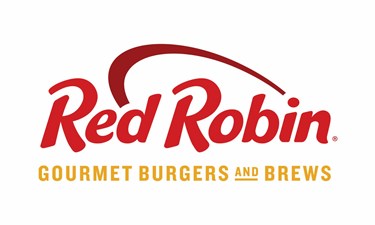Restaurant And Hospitality News – December 19, 2016

By Christine Kern, contributing writer

In news this week, Fitch Ratings says restaurant sales will slow in 2017; Red Robin is experimenting with delivery to boost sales; and Hotels.com examines the Hotel of the Future.
Fitch Ratings Forecasts Restaurants Will See Slower Sales For 2017
A new report from Fitch Ratings says that restaurants will continue to trade market share but also should see improved profitability in 2017, according to the Nation’s Restaurant News. 2017 will see restaurant companies continue to trade market share as overall industry sales growth slows, but falling food costs and increased productivity will mean boosts in profitability. Restaurant sales are projected to grow 4 percent in 2017, down from the 5 percent growth in 2016. Meanwhile, flat traffic growth is anticipated.
“There will be winners and losers,” said Carla Norfleet Taylor, senior director of US Corporates for Fitch Ratings. “It’s a market-share game. Traffic is just not growing.”
“We’re not expecting any big pickup in traffic growth,” Norfleet Taylor said. “We don’t see a big catalyst for an uptick in traffic.”
The lack of traffic growth has come despite a host of economic data suggesting consumers have more money to spend and are more confident in the economy. Gas prices and the unemployment rate are low, and wages have risen.
And Fitch expects that restaurants will be more profitable in 2017 as commodity costs are projected to continue to fall and even with rising labor costs, increased productivity will offset any increases.
Red Robin Turns To Delivery To Boost Outside Sales
As Red Robin competes with its peers to capture a larger market share of the American restaurant audience, it is turning to delivery to help boost its outside sales, according to Investopedia. Red Robin has fared better than any of its competitors, posting a 4.9 percent increase in revenues in the third quarter, but it did see same-store sales drop by 3.6 percent. The chain's profit margin also dropped to 18.6 percent from 21.6 percent in the same period a year ago, which caused it to post a $1.6 million loss, down from an $8.3 million profit in 2015.
To counter these numbers, the chain has announced that it is adding delivery services to a number of its locations, partnering with DoorDash to offer the service from 70 of its restaurants nationwide, The Nation’s Restaurant News reported. "Red Robin wants our guests to enjoy a great meal wherever their busy lives take them, and DoorDash offers a unique opportunity to pair our unmatched quality and taste with speed and convenience of their delivery," Vice President of Alternative Platforms Jason Rusk told NRN.
Delivery service is being offered in Phoenix; Seattle; Los Angeles; Indianapolis; San Francisco; Chicago; Dallas; Houston; Charlotte, N.C.; Washington, D.C.; Columbus, OH; and Minneapolis. The delivery services are seen by Denny Marie Post, CEO of Red Robin, as an opportunity to build sales as it struggles to turnaround negative same-store figures.
While Red Robin plans a full rollout of refined carryout, delivery and catering options in 2017, the chain has been experimenting with various third-party partners, and it’s not clear what the final roll out platform will entail.
DoorDash officials said the Red Robin deal is their largest with a national casual-dining burger chain. Among casual-dining players, DoorDash is also working with The Cheesecake Factory, Buca di Beppo and P.F. Chang’s China Bistro.
Study Projects What Hotels Of The Future Will Entail
Hotels.com and futurist Dr. James Canton of the Institute for Global Futures recently partnered to create the Hotels.com Hotels of the Future study, which projects how the travel and hotel experience will transform over the next year, next 25 years, and even by 2060. The study anticipates that the way travelers engage in their trips will be dramatically different in all aspects as super-tech meets super-science, and say “When travelers check into a hotel in 2060 they can expect it to be on Mars, to feature augmented reality, artificial intelligence, morphing beds, robotics, touchscreen everything, hyper connectivity and much more.”
From robobutlers to personal avatars, technology will exert a large influence on the way travelers experience their journeys from booking to returning home. The projections also include morphing hotels, which “self-assemble and morph from one design to another” using nanotechnology and based on consumer votes.
Another aspect of the future hotel room will be the omnipresence of 3D Printers/Makers, which “will generate in real time items guests desire, such as new shoes, clothes, or even computers and phones,” making the need for luggage a thing of the past. 3D shopping will also be available, the study projects, allowing consumers to download retail goods from the cloud, designed on demand.
Even neuro-technology will become an element of the ultimate hotel stay, with future travelers able to choose their own dreams before falling asleep using neuro-technology to program their dreams and optimize their night.
And when it comes to payments, DNA will be used to confirm identity for mobile transactions for travel bookings and online payments. Check in will also use DNA fingerprints to confirm your identity, allowing for a much faster-paced check-in process.
